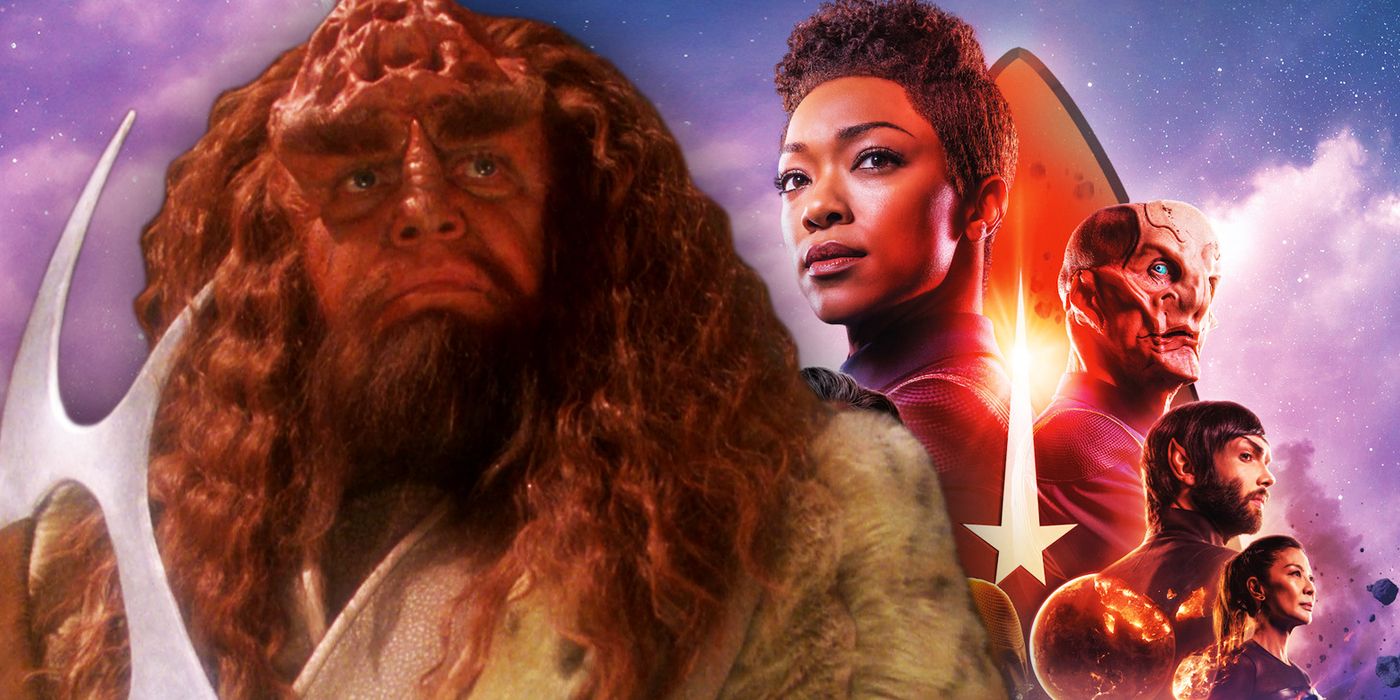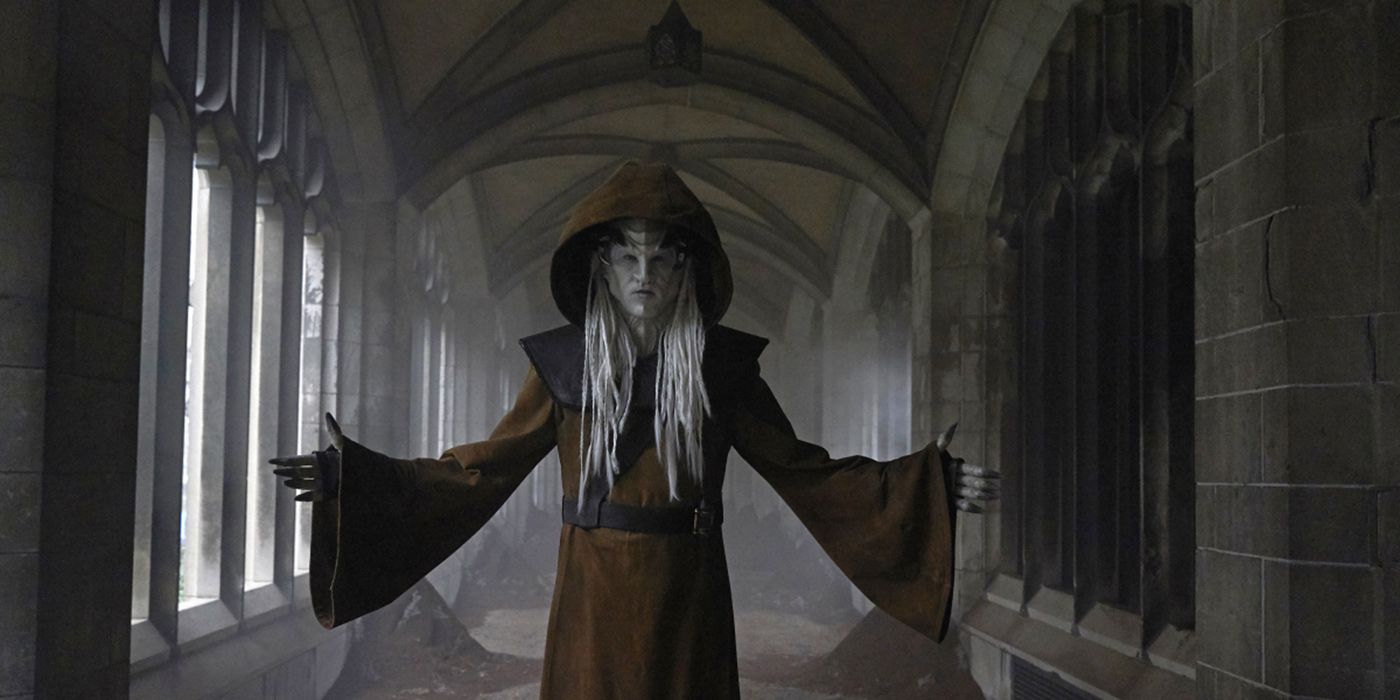Star Trek: Discovery's addition of time crystals into the backstory of the monks of Boreth means that the Kahless clone introduced in The Next Generation episode "The Rightful Heir" could have been the real thing after all. That would further make most of Klingon culture (and T'Kuvma's cult) is based on a temporal paradox.
In the 24th century, Lt. Worf visits the monastery on Boreth for some spiritual reflection. There he witnesses the apparent second coming of Kahless, the Klingon messiah who's credited with conceiving the honor-based culture that governs nearly all aspects of Klingon life. Supposedly, Kahless returned from Sto-vo-kor on Boreth just as he was prophesied to do, but by the end of the episode it's revealed the monks cloned the original Kahless in an attempt to bring back his inspirational leadership and unite the factious Klingon Empire. They found a way to imprint "memories" onto Kahless II's mind using stories from their sacred texts, but the procedure was far from flawless and the clone's recollections of well-known tales were spotty. But, because he remained an important spiritual symbol to Klingons at large, he was still installed as Emperor, though largely as a figurehead.
Now that we know from Star Trek: Discovery the monks of Boreth had access to time crystals - and that the series has proven it's explaining long-standing ideas like the Borg or Pike's injuries - it's entirely possible Kahless' clone could've been the original Kahless the Unforgettable.
Given his close relationship with the monks on Boreth and the amount of time he spent there, there's no way the Kahless clone wasn't aware of the presence of time crystals and their potential power. If he were so inclined - and, being a clone, there's an obvious motive there - it's entirely possible that he could have found his way toward using a crystal (or one of the other myriad time travel methods available by this point in Star Trek history) to travel back to the original Kahless' time period.
But what if he found nothing there? What if - and this is a big "if" since the time crystals are something of a retcon - Kahless the Unforgettable never existed, but was actually a curious clone who traveled back in time to meet his "maker"? When confronted with his forged identity in The Next Generation, Kahless II isn't elated. He's deeply disturbed to realize his entire existence is a fabrication and, while he eventually accepts his post as figurehead Emperor, it more than makes sense that, at some point, he might have longed for a little genuine legitimacy or to experience some of his "memories" for real. Either way, there's a case to be made for Kahless II wanting to travel back in time - if only for the sake of truth and honor.
Kahless the Unforgettable's life is about as epic as ancient myths get. He created the first bat'leth by dipping a strand of his hair in the lava at Kri'stak Volcano. He brought his father back to life by retrieving the man's spirit from Sto-vo-kor and he held off an entire army single-handedly. But things aren't quite as they seem. There was indeed a Klingon man named Kahless who existed, but his feats were those of a mortal; The Next Generation novel Kahless downplayed a lot of legends, and while it's not official Star Trek canon, it does raise the suggestion that the memories Kahless II receives probably didn't happen, leaving room for the possibility of temporal interference.
As speculated by Reddit user unimatrixq, Kahless II could have gone back in time and accidentally ended up creating his own myth. Instead of there being a genuine Kahless the Unforgettable who created Klingon culture, there was a clone who filled the role thanks to the knowledge of his own history. It makes sense that Kahless II's own commitment to honor and the Klingon future timeline would encourage him to act as the original Kahless in order to ensure the culture of law and honor that governed Klingon society would be created. And, considering Chancellor L'Rell mentioned in "Through the Valley of Shadows" that Klingons stopped using time travel as a weapon because of the unpredictable implications, this would certainly fit that bill in an ironic way.
While the constituent elements of this theory mostly come from relatively minor subplots across different areas of Star Trek fandom, there's more than enough room for this particular tinfoil idea to solidify at some point should Discovery's showrunners decide he wants to dive into a Klingon origin story from a very unique perspective.
Star Trek: Discovery streams Thursdays @ 8:30pm on CBS All-Access and internationally the next day on Netflix.


